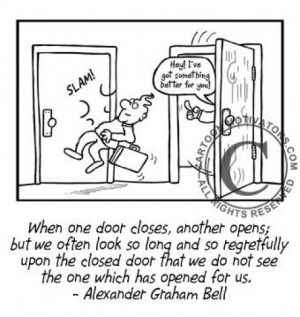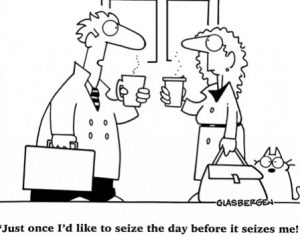 Why is it so difficult to change?
Why is it so difficult to change?
I am in the business of causing change… Causing you to cause change for yourself…
I, for a period of time, declared that the context of my life was to be an inspiring leader of leaders.
How did that go? Not very well, I must admit.
Causing change two levels down is about 20 times harder to cause one person to want to change, to cause their own change… and that one is wicked difficult already.
What or who is a change agent… or why is it so difficult to change?
Because ultimately the person to change is the person who causes the change. If that is you, then it’s YOUR actions that cause the change…
I am pointing you towards the actions that can cause change, towards the thinking that can cause change, towards the books, ideas, principles… and you either change or you don’t… It. Is. Not. Up. To. Me.
People always teach what they need to learn. I am not an exception.
Change is hard for me… hard until it is easy. And what happens between the two stages is what this article is about…
When I look at my students, change is always the challenge… and this article, hopefully, will make my job easier by making you more conscious of the inner dynamic…
Most of change is like what goes on in the soil that leads to a tree: going from seed to seedling to plant to tree…
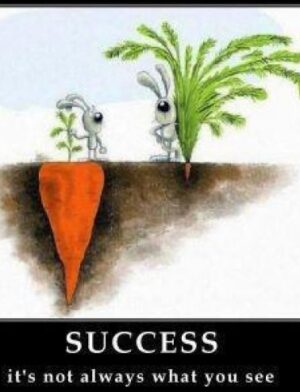 It is not instant, even though your mind thinks it should be. You have the good idea to change, and voilà change happens.
It is not instant, even though your mind thinks it should be. You have the good idea to change, and voilà change happens.
But while for a seed to go to seedling is automatic if the conditions are favorable, it is in their DNA, hardcoded, for you to change is not in the DNA, it is not hardcoded… it needs to be caused consciously.
If you watch people: people mostly don’t change, or if they do, they go backwards, from good to bad and to worse. That is the default change for most people.
To grow, to evolve, to become better is not the norm… even though it is Life’s requirement.
It needs to be caused, and it needs to be supported, consciously and gently.
This is why the vibration of humanity is slowly but surely eroding, your health, your smarts, your knowledge, your self-respect, your ambition, your dreams are devolving.
Entropy. And a species in the throes of diminishing, entropy, of course, will destroy the next generation, and the planet… This is where we are.
And this is where you are.
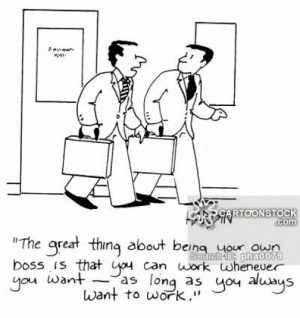 Letting ‘nature’ take its course is the worse strategy… Unless you take matters in your own hand, with the help of a coach or a good therapist, that is where it’s going, your life, your money, your health: entropy.
Letting ‘nature’ take its course is the worse strategy… Unless you take matters in your own hand, with the help of a coach or a good therapist, that is where it’s going, your life, your money, your health: entropy.
Entropy: gradual decline into disorder. The opposite of what you want, the opposite of what you hoped for.
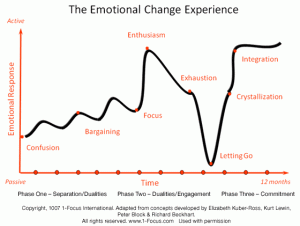 Here is an article from the New York Magazine, written by a therapist.
Here is an article from the New York Magazine, written by a therapist.
Her example may differ in subject-matter, but change is change is change… If you are stuck in a business you hate but is giving you a living… this article is for you. Maybe you are stuck in a behavior you can’t change… this article for you too. Or you are stuck not being able to move… like me, this article is for you too.
The question that is still reverberating in me is ‘What are they afraid of giving up?’ And the second sentence that suddenly allowed me a glimpse into the source of the unwillingness to change: ‘The real loss, right now, is giving up the future you’ve been hoping for.‘ So just reading this article has pushed me further in this ‘model’ of creating change. Wow… that was fast… And I am now present to the terror I feel… Good, bring it on!
So, if you want a better future and it takes change… read this article… You’ll thank me for it. And if you are a student, you’re lucky. The more I learn the more I can help….
Dear Therapist,
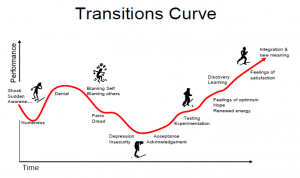 For the last six and a half years, I was involved with my guy best friend. It started off as a friendship and eventually developed into a ‘best friend with benefits’ relationship. We spent hours, days, and nights together, and sometimes it was almost like we were boyfriend and girlfriend, even more. About two years into our ‘friendship,’ we decided that it was time to stop. I wanted more, he couldn’t give it to me, and it was time to move on.
For the last six and a half years, I was involved with my guy best friend. It started off as a friendship and eventually developed into a ‘best friend with benefits’ relationship. We spent hours, days, and nights together, and sometimes it was almost like we were boyfriend and girlfriend, even more. About two years into our ‘friendship,’ we decided that it was time to stop. I wanted more, he couldn’t give it to me, and it was time to move on.
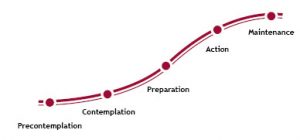 We lived about a seven-minute walk from each other, and I avoided ‘his’ area at all costs. But I still missed him, and through our mutual friends I heard he missed me too. About a year passed, and one drunken night I decided to contact him.
We lived about a seven-minute walk from each other, and I avoided ‘his’ area at all costs. But I still missed him, and through our mutual friends I heard he missed me too. About a year passed, and one drunken night I decided to contact him.
It was like old times, and before long, we were right back to where we left off. But it was not always a walk in the park. Every so often we would have a ‘talk,’ which almost always came from him: We had to stop. This would last about a week or so, and then we would end up seeing each other again.
The conflict
About ten months ago, I decided that it was time to make a change and move away to New York. Within four months, my guy best friend came to visit me. We had a blast, and a couple of months later he moved to Europe.
Since he moved, he has become more distant. We had the chance to meet in Europe last month, briefly, and we had a great time, but in his true fashion, right before I was about to fly back, he said that we can’t go on like this, and that we won’t be together. I had heard this more than a hundred times, but recently I feel like he really means it.
I know that he is the healthy one here and that he is right, but in the last week it has been hard for me to let him go, as much as I want to move on. The more I feel his distance the harder it is for me to let go. Logically I know that he is not for me and that he does not see me in his future — but my question to you is: Why is it so hard to let go? Why is it hard to break patterns?
Thank you,
Time to Let Go
Dear Time to Let Go, the answer
When you ask, ‘Why is it so hard to let go?’ and ‘Why is it so hard to break patterns?,’ I think what you’re asking is,’Why is it so hard to change?’ Therapists are particularly interested in that question, because if therapy is about guiding a person from where they are now to where they’d like be, we must always bear in mind: How do humans change?
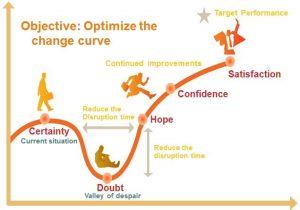 In the 1980s, a psychologist developed the Transtheoretical Model based on research showing that people generally don’t ‘Just Do It,’ as Nike (or a New Year’s resolution) might have it, but instead tend to move through a series of stages before modifying behaviors they want to change. The five stages look like this:
In the 1980s, a psychologist developed the Transtheoretical Model based on research showing that people generally don’t ‘Just Do It,’ as Nike (or a New Year’s resolution) might have it, but instead tend to move through a series of stages before modifying behaviors they want to change. The five stages look like this:
- Stage 1: Pre-contemplation
- Stage 2: Contemplation
- Stage 3: Preparation
- Stage 4: Action
- Stage 5: Maintenance
So let’s say you want to make a change:
exercise more, eat healthier, switch jobs, get out of a problematic relationship, apply to graduate school, stop drinking, or even try therapy for the first time.
What keeps people from taking action? According to this model, change involves a series of subtle preparatory adjustments.
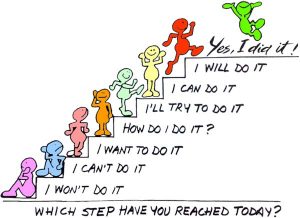 The first of these is pre-contemplation, which is to say you’re not even thinking about changing.
The first of these is pre-contemplation, which is to say you’re not even thinking about changing.
Some therapists might liken this to ‘denial,’ meaning that you don’t consider yourself as having a problem. Think of the alcoholic who rationalizes her drinking with ‘But everyone my age goes out and drinks a lot.’ If challenged early on, this person might shut down, get irritated, or deflect attention from the issue under discussion by raising a separate problem: ‘Never mind my drinking. What do you think about the thing my boss said to me?’
Likewise, let’s say that you’d come into my office six years ago and told me that you were sleeping with your best friend who doesn’t want to be your boyfriend. I imagine you would have shrugged if asked how you truly felt about this situation. ‘We’re cool — it’s no-strings-attached,’ you might have said breezily. ‘But, hey, I’m kind of bored with my job. I wonder if I should look for something more fulfilling.’
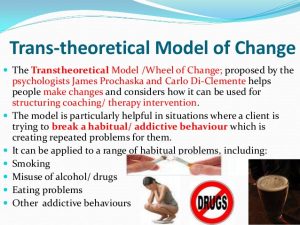 About a year or two later, when you realized that you wanted more, you moved to the next stage: contemplation.
About a year or two later, when you realized that you wanted more, you moved to the next stage: contemplation.
Contemplation is rife with ambivalence. Here the person recognizes the problem, is willing to talk about it, and isn’t opposed (in theory) to taking action, but just can’t seem to get herself to do it. You wanted to move on from your friend with benefits but couldn’t seem to do so.
It’s during the contemplation stage that people often land in therapy:
A woman wants to leave her unhealthy marriage but comes up with a host of reasons why she can’t. A man suspects that his girlfriend is having an affair but won’t confront her about where she might be when she’s not answering his texts. The alcoholic gets a DUI and acknowledges she needs help, but misses the deadline to sign up for her treatment program.
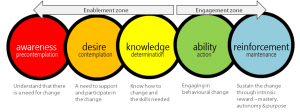 When I was just starting out as a therapist, I’d feel an urgency in these situations. Sometimes I still do. I want to be patient with people as they go through these stages, but I also want to coax them along.
When I was just starting out as a therapist, I’d feel an urgency in these situations. Sometimes I still do. I want to be patient with people as they go through these stages, but I also want to coax them along.
Push too hard, they’ll regress. Don’t push hard enough, they won’t progress.
People’s lives are at stake and they don’t have forever. They’ll never get these years back. Of course, therapists aren’t persuaders. We can’t tell an anorexic to eat. We can’t tell an alcoholic not to drink. We can’t tell people not to be self-destructive. It just won’t work. All we can do is try to help them understand themselves better by showing them how to ask themselves the right questions until something happens — either internally or externally — that gets them to do their own persuading.
It’s all about laying the groundwork:
go in, back off. All the while, we keep in mind that for every gain, there will be a loss, and we help clients to explore the question: What are they afraid of giving up?
I mention loss because change and loss travel together. We can’t have change without loss, which is why so often we say we want change but nonetheless stay the same.
When you say that it’s hard to let go despite wanting to move on, what you’re really talking about is grief. You’re grieving, but sometimes what we’re actually grieving is the future more than the present.
After all, it doesn’t sound like you’re very happy with the present situation. The real loss right now is giving up the future you’ve been hoping for.
What if we were a couple? What if we got married and shared a life together? No matter how unsatisfying the present is, it allows you to hold on to that fantasy. And clinging to that fantasy has served a purpose: It lets you avoid the present.
 Have you noticed that whenever you feel lonely (or empty or sad or anxious), your guy friend becomes your tranquilizer? He’s been your fix, your emotional heroin, with the added challenge that in other addictions, the thing that soothes you doesn’t text you and ask you to come over.
Have you noticed that whenever you feel lonely (or empty or sad or anxious), your guy friend becomes your tranquilizer? He’s been your fix, your emotional heroin, with the added challenge that in other addictions, the thing that soothes you doesn’t text you and ask you to come over.
Now, with your tranquilizer an ocean away, you’ll have to endure the pain of the present and an uncertain future. And to get to the future you want, you’ll have to face reality, however painful it is for you to think about.
Will it take time to create the future you want?
Possibly. It takes time to start over. But you could also get stuck in the present for so long that the future you want becomes closed off to you.
 I don’t know who else you’re dating, if anyone. Nor do I know what else is going on in your life — what brings you joy, how your life is peopled (friends? family?) — though it seems that your guy friend takes up a good deal of your mental real estate.
I don’t know who else you’re dating, if anyone. Nor do I know what else is going on in your life — what brings you joy, how your life is peopled (friends? family?) — though it seems that your guy friend takes up a good deal of your mental real estate.
Without him, a large space will open up, and when it does, the grief for your fantasy future will flood in. That’s a good thing. You need to grieve the future you’ve spent so much time imagining. This will be part of your preparation phase. But that doesn’t mean you can’t simultaneously move to the next stage of change: action.
 You can think and think about change, but ultimately you’ll have to start.
You can think and think about change, but ultimately you’ll have to start.
Yes, change is hard. Yes, it involves taking responsibility for your life. And yes, it requires you to give up the familiar, which no matter how unpleasant can still feel comforting.
And yes, change will put you face-to-face with loss.
But what’s beautiful about this loss is that while you might have to give up the hope for a better past or a less painful present, the future is squarely in your court.
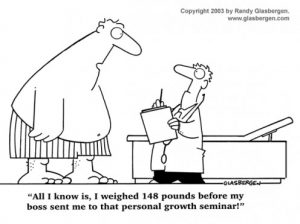 You can accelerate the phases, you can make despair less deep, you can do a lot of things… but what you must do is go through the phases.
You can accelerate the phases, you can make despair less deep, you can do a lot of things… but what you must do is go through the phases.
There are no big jumps in nature, or if there are any: they are towards destruction… not growth.
I know you want instant results, and it’s nice, a nice idea, but not the way nature works.
 One of my favorite slogans is: you don’t have get it right, you just have to get it going… Every action produces a result… if nothing else, a place from where the world looks slightly different.
One of my favorite slogans is: you don’t have get it right, you just have to get it going… Every action produces a result… if nothing else, a place from where the world looks slightly different.
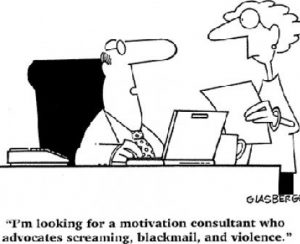 And that slightly different look may lead you to another action and another action and another action. And in the end you’ll get to a place from where it is now visible… it is now predictable… but until then you just took the action to see what your goal should be.
And that slightly different look may lead you to another action and another action and another action. And in the end you’ll get to a place from where it is now visible… it is now predictable… but until then you just took the action to see what your goal should be.
 Don’t be fooled by ‘marketeers’ who say everything to sell you something. Don’t be the sucker.
Don’t be fooled by ‘marketeers’ who say everything to sell you something. Don’t be the sucker.

